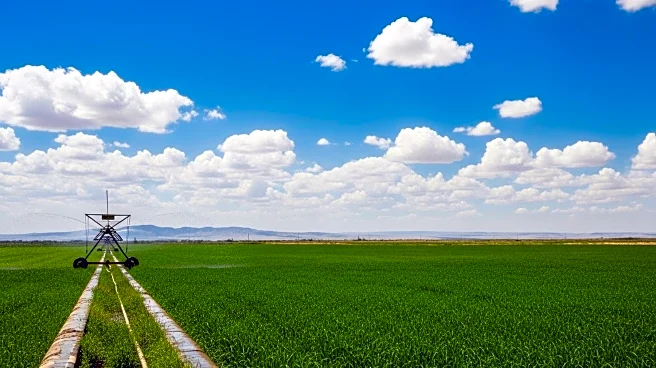What's Happening?
Iran's agricultural sector is proving resilient against the threat of renewed sanctions, thanks to its self-reliance and extensive arable land. With 18 million hectares of farmland and four distinct climatic zones, Iran's agriculture is positioned as a potential savior for the non-oil economy. The sector relies on domestic resources, making it less susceptible to external pressures compared to oil and financial industries. Iran's diverse climate allows for a wide range of agricultural production, strengthening food security and reducing dependency on imports.
Why It's Important?
The resilience of Iran's agricultural sector amid sanctions highlights the importance of self-sufficiency in maintaining economic stability. As sanctions limit access to oil revenues, agriculture can help fill the economic gap and drive broader economic growth. The sector's ability to withstand external pressures underscores its strategic importance in supporting Iran's non-oil economy. It also reflects the potential for agriculture to play a key role in geopolitical positioning and international trade.
Beyond the Headlines
Iran's agricultural sector not only supports domestic food security but also has the potential to drive economic growth through value chains in food processing, packaging, and exports. The sector's reliance on internal resources and strategic geographic position make it a resilient pillar for the country's economy. Technological and scientific advances in agriculture further enhance productivity and reduce dependence on imported inputs, leveraging natural resources and domestic expertise.












